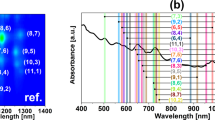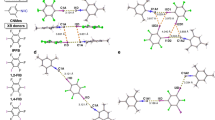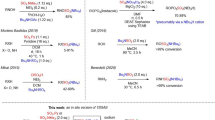Abstract
THE isolation of the ketonic fraction of biological materials by the use of trimethylcarbohydrazidomethylammonium chloride (reagent ‘T’) has been described by Girard and Sandulesco1. Essentially, the method utilizes the formation of water-soluble, ether-insoluble hydrazones between the ketonic bodies and the reagent, from which the non-ketonic fraction is removed by repeated ether extraction. This complex compound is then decomposed by treatment with mineral acid, and the resulting ketonic fraction extracted with ether.
This is a preview of subscription content, access via your institution
Access options
Subscribe to this journal
Receive 51 print issues and online access
$199.00 per year
only $3.90 per issue
Buy this article
- Purchase on Springer Link
- Instant access to full article PDF
Prices may be subject to local taxes which are calculated during checkout
Similar content being viewed by others
References
Girard and Sandulesco, Helv. Chem. Acta, 19, 1095 (1936).
Author information
Authors and Affiliations
Rights and permissions
About this article
Cite this article
WALTERS, C. Removal of Girad Reagent ‘T’ from Biological Ketonic Fractions not easily Extracted by Organic Solvents. Nature 166, 604–605 (1950). https://doi.org/10.1038/166604a0
Issue Date:
DOI: https://doi.org/10.1038/166604a0
Comments
By submitting a comment you agree to abide by our Terms and Community Guidelines. If you find something abusive or that does not comply with our terms or guidelines please flag it as inappropriate.



